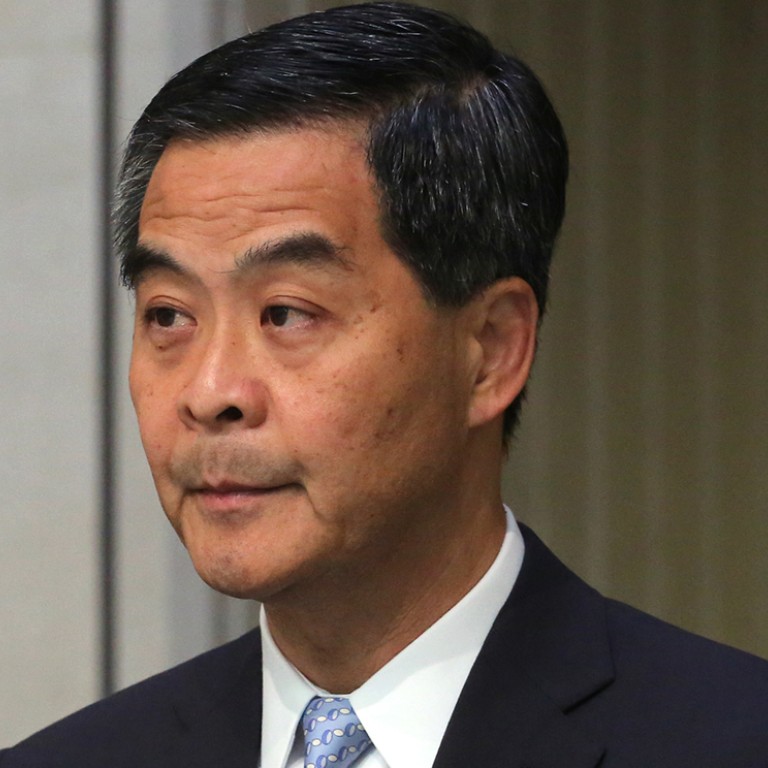
Beijing wants tycoons to take action, not just pay lip service
Withdrawn Xinhua report a sign that central government is losing patience with tycoons who it sees as not doing enough to oppose Occupy
State media don't make "mistakes", so when they say they have made a spectacular one, it's always for a special purpose.
At play is the Xinhua News Agency. At noon last Saturday, it published a signed commentary headlined "Hong Kong tycoons reluctant to take sides amid Occupy turmoil".
The article - which singled out Li Ka-shing of Cheung Kong (Holdings) and three other magnates - was removed at 7pm.
By 10.35pm, Xinhua ran a new story with a completely different tone. "Several Hong Kong business leaders have criticised the month-long Occupy Central movement," its first paragraph read.
It is not hard to imagine the tycoons' shock at the first version.
Their subordinates must have been ringing up their mainland contacts for clues. The answer: it was nothing but a "mistake" made by a junior journalist who was new to Hong Kong.
In the following days, some officials even said the journalist and those involved had been disciplined for making the mistake.
Xinhua is not known as a place where commentators can write what is on their mind
No frequent visitor to China's corridors of power will believe this. After all, Xinhua is not known as a place where commentators can write what is on their mind. It is a government mouthpiece.
Many of them have also heard of the insults levelled at former chief secretary Anson Chan back in September 2000, when Tung Chee-hwa was into his fourth year as chief executive of Hong Kong. While his popularity was nose-diving, Chan was loved. Many mentioned her as a potential rival to Tung in the election to come.
She was summoned to Beijing to meet then vice-premier Qian Qichen and Liao Hui, who was the director of the Hong Kong and Macau Affairs Office.
In one of the meetings, the top man excused himself to take an urgent phone call after some causal exchanges, leaving his subordinates behind with Chan.
To her surprise, one of them got stuck into her for undermining Tung's leadership. For the iron lady of Hong Kong, the wording could not have been stronger.
When the "lecture" was over, the top man returned and picked up his polite conversation with Chan, saying her support for Tung was vital to the success of the administration.
Six months later, she resigned as chief secretary. The year after, Tung won an uncontested election.
How true is this tale? Nobody knows. Yet, to any veteran journalist, this bad cop/good cop play is no news at all.
An editor remembered how he was told off by the secretary of a senior official at the Hong Kong Macau Affairs Office in a closed-door meeting.
The secretary read the criticism from a notebook. His boss stopped him from making the "unfair comments" and told the editor how much he treasured their friendship and looked forward to his professional reporting in the future.
In short, listen to the bad cop. The message: Beijing is impatient with the tycoons.
READ MORE: Click here for all the latest Occupy Central stories
At issue is not what the tycoons have or have not said. In fact, the retracted commentary did mention Li calling on the protesters to go home and not to "let today's passion become tomorrow's regrets".
Yet, it added: "Asia's wealthiest man did not make it clear whether or not he agrees with the appeals of the protesters."
At issue is their failure to take action. It is no secret that many tycoons in Hong Kong campaigned against Leung Chun-ying in the 2012 election. It was not a fight about ideology but who got to eat the cake - the old or the new interest groups.
In spring last year, Beijing managed to bring some in line, best symbolised by media magnate Charles Ho's public retraction of his criticism of Leung.
Others have refrained from making direct attacks on Leung. Yet, hands on hearts, not everyone is on board.
This type of lip service, which may be sufficient when times are "peaceful", is no longer enough.
When Beijing has labelled the movement a "battle for sovereignty" and support for Leung as support for the central government, it is demanding action to show full loyalty.
That demand for more than lip service is perhaps why, even a week after the Xinhua episode, no tycoon has spoken up.

